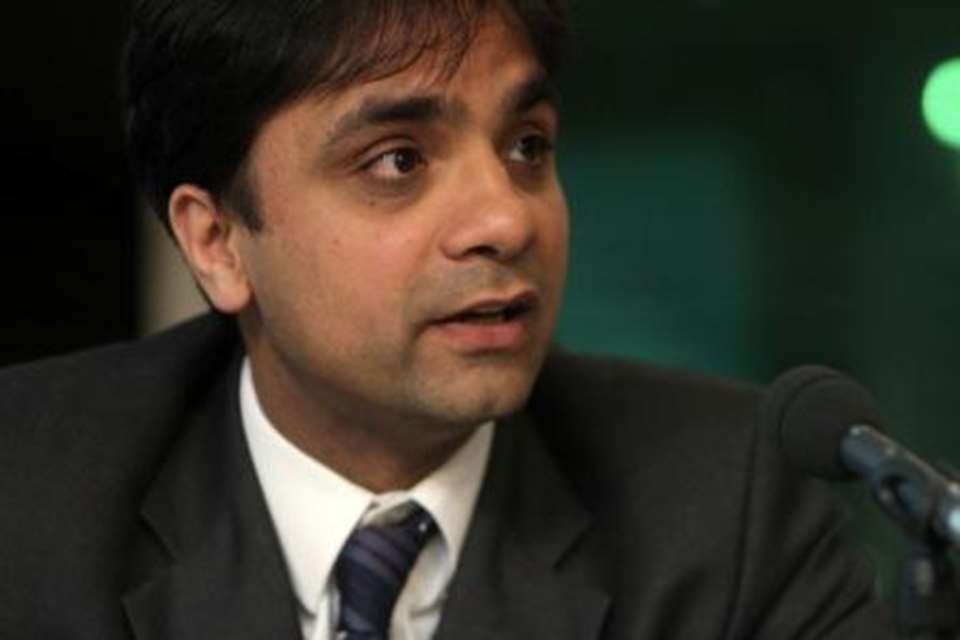Government urged to scrap universal funded childcare
Monday, February 6, 2017
A report by think tank the Institute of Economic Affairs (IEA) calls for the free entitlement, tax-free childcare and the EYFS to be done away with to drive down costs.

‘Getting the state out of pre-school and childcare: Ending the nannying of UK parents’, says any state intervention on childcare should be targeted towards poorer families with low levels of employment.
It argues that Government subsidies such as the universal ‘free’ hours have distorted prices and are poorly targeted – so that those who need the most help don’t receive it, while many affluent parents are ‘generously’ subsidised.
The report warns that the move to 30 hours will not reduce the underlying market price of childcare because it will not reduce the cost base, meaning that at best it is ‘redistributive’. At worst it says it could increase childcare fees for other groups as providers will need to ‘cross-subsidise’ to remain financially viable. One reason for this is Government funding rates that in most cases will not cover costs..
According to the IEA, despite the Government putting more than £7 billion into the sector every year, childcare provision in the UK is among the most expensive in the developed world. A family earning roughly the national average wage now spends more than a third of their net income on ‘out-of-pocket’ childcare costs.
The report also claims that ‘overarching’ regulations such as staff: child ratios and occupational qualifications have pushed many lower-cost childcare providers out of the market.
It calls the EYFS a ‘backwards extension to the national curriculum’ and questions what it is meant to achieve. It says it is not obvious that Britain needs such a ‘highly structured and paper-heavy system, which has few parallels elsewhere.’
The report goes on to illustrate how Government intervention in the sector has ‘dramatically' raised the cost of childcare, while doing little to improve quality of care or the future prospects of young children, for example by:
- introducing the free entitlement, which the IEA says has ‘distorted’ the market price of childcare and led to ‘inequitable cross-subsidisation’, while excessive regulation has raised costs for providers;
- a failure to aid child development as the benefits of early education weaken with age and completely disappear by 11;
- the enforcement of the EYFS, which it says has put costs up for providers and driven large numbers of childminders out of business;
- high staff:child ratios – the report says ratios should be removed as they reduce productivity and the earning power of practitioners and the quality of entrants to the sector.
The report concludes by recommending the abolishment of universal free childcare and introducing provision targeted at disadvantaged families, the upcoming tax-free childcare system to be replaced by a universal credit system for unemployed or part-time workers and, the removal of ratios and ‘mandated qualifications’ for childcare practitioners’.
It also calls for the variety of childcare to be expanded and suggests introducing private provision in family churches and other ‘non-commercial civil society institutions’.
The IEA says that the fall in the cost of childcare achieved through its proposals would not necessarily be passed on to families directly, however the reduction in Government spending could be passed through to families indirectly through tax cuts, including increasing any household child allowance.
Joint author Len Shackleton, editorial and research fellow at the Institute of Economic Affairs, said, ‘Government interventions in the childcare sector have resulted in both British families and taxpayers bearing a heavy burden of expensive provision. Regulation has led to an excessive formalisation of childcare and pre-school, which has not only pushed up costs but paid scant attention to parental preferences. Many families may not want the structured form of pre-school that the Government requires as standard.
‘At a time when many families are facing a cost of living crisis, it is important the Government rethinks its involvement in childcare. Rowing back on unnecessary regulation and focusing public funds on those who need it, rather than subsidising the well-off, would be a good way to start.’
Ellen Broome, deputy chief executive at the Family and Childcare Trust, said, ‘Too many families struggle to find high-quality childcare that they can afford: now is the time for the Government to step up, not step back. Only high-quality childcare narrows the gap between disadvantaged children and their more well-off peers, so making savings that compromise quality are a false economy.
‘We need a robust childcare strategy that prepares children for tomorrow’s world and helps parents to work today. Without determined Government action, the children that need support the most – including disabled children – will continue to miss out.’
A Department for Education spokesperson said, 'Helping families with high-quality, affordable childcare is at the heart of this Government’s agenda - that’s why we are investing a record £6 billion per year by 2020.
'Our 30 hours free offer for 3 and 4 year olds is set to save working parents up to £5,000 per year and we’re also supporting the most disadvantaged families through our free 15 hours offer for 2 year olds and our pupil premium – worth over £300 a year per eligible child. We make no apologies for regulations which keep children safe and well.'
The Pre-School Learning Alliance said it was disappointed that the report failed to recognise the important and valuable contribution that the early years sector makes.
Its chief executive Neil Leitch said, 'Yes, childcare is expensive, but reducing regulations – for example by abandoning rules around staff to child ratios – is not the way to reduce costs. When the Government tried to relax ratios in 2012 parents and providers were overwhelmingly opposed to the proposals. Indeed, while the sector can claim some success for inspiring the Government’s u-turn, it was pressure from parents which ultimately drove the decision to rescind the policy.
'Likewise, to refer to the EYFS as a ‘backwards extension to the National Curriculum’ is short-sighted to say the least. This comprehensive framework is not only effective, but highly regarded around the world. To abandon the system, which incorporates clear strategies for children’s learning and development, would be a regressive step.
'While we appreciate there are flaws in the Government’s early years policy - not least doubling the free entitlement from 15 to 30 hours without properly analysing how to fund the scheme – to remove state intervention entirely, as this report suggests, would be fool-hardy at best, and downright dangerous at worst.'
Purnima Tanuku, chied executive of the National Day Nurseries Association, said, 'We disagree with most of this report’s conclusions and recommendations.'
'We support the principle of free universal childcare because it supports children’s development and helps families, but there needs to be adequate investment and the funding process needs to be more streamlined.
'We do agree, though, that the cost of childcare for parents in this country is very high, which is largely due to fees for paid-for hours having to be increased to make up for the chronic funding shortfall from the Government for ‘free’ hours.
'While we don’t condone more red tape than is necessary, the staff-child ratios are in place for a reason, for the child’s safety and quality of provision. It’s the quality of their early learning that can make such a difference in their lives. This has been evidenced and widely acknowledged in various studies including EPPSE.
'Funded hours along with initiatives such as tax-free childcare significantly reduce the average household’s childcare bill and provide much-needed support for most families. What is critical is delivering childcare policy in a way that allows providers to operate sustainably.'








